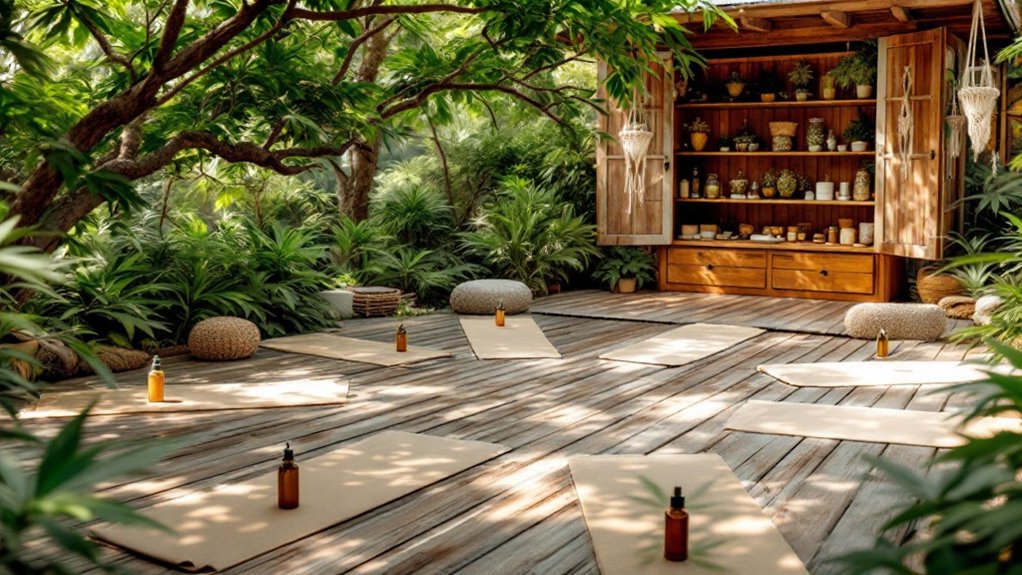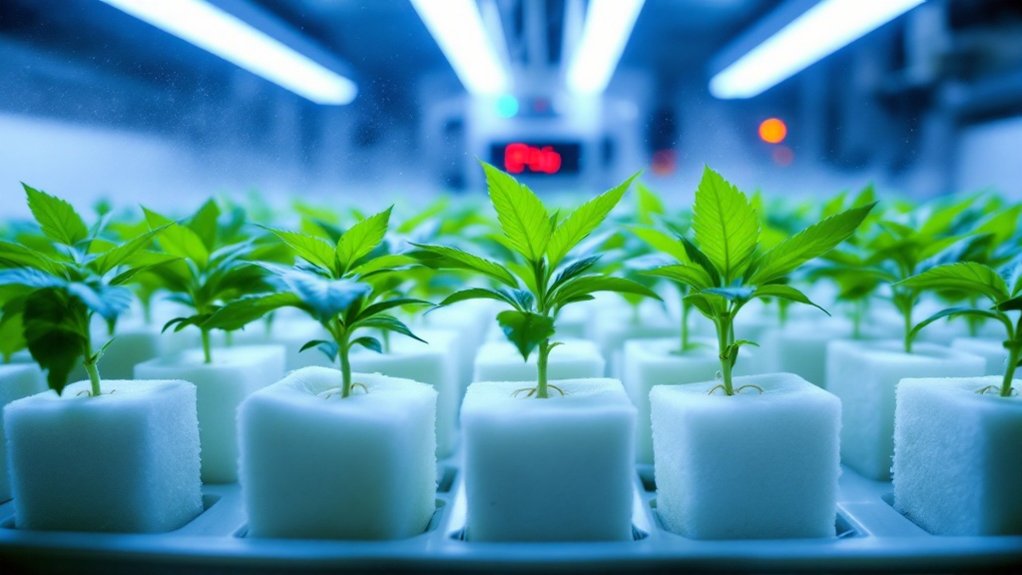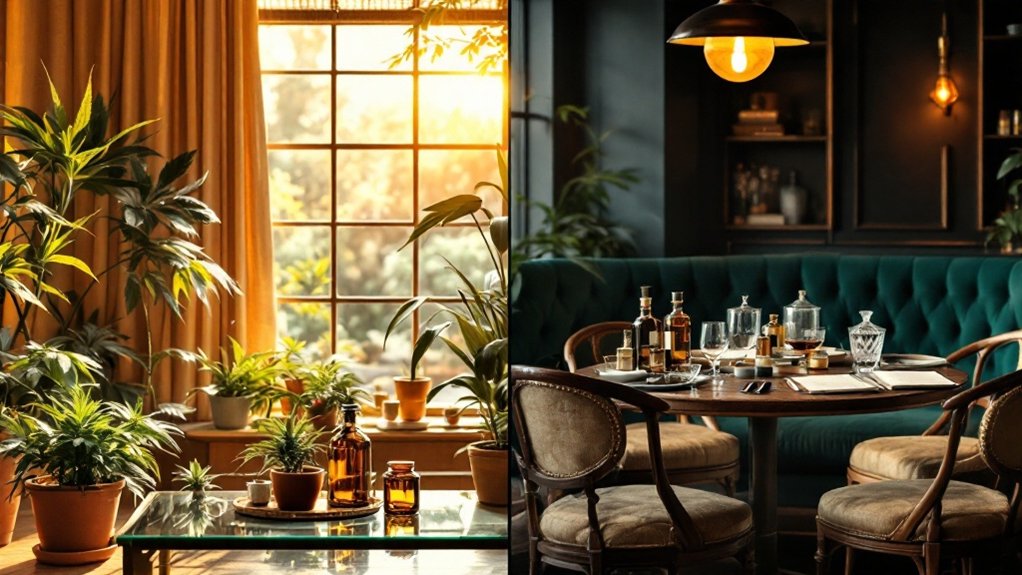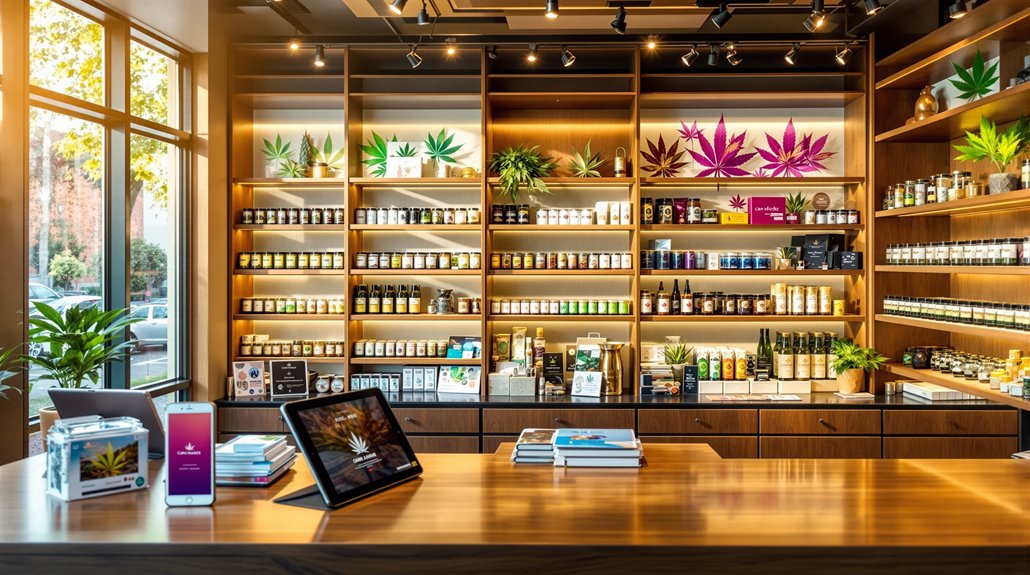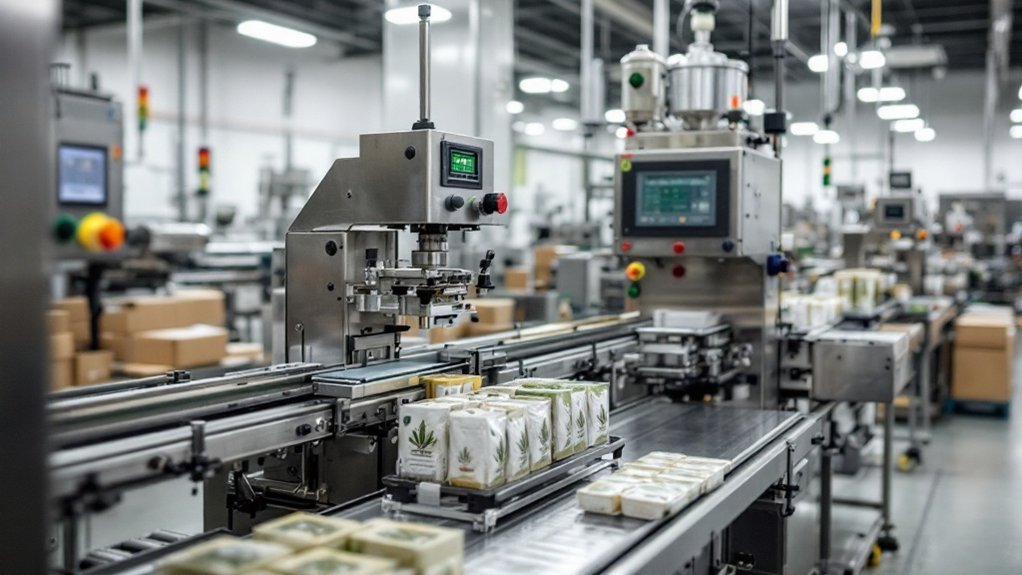Cannabis wellness retreats are reshaping how people approach stress management and personal development. These specialized programs combine therapeutic marijuana use with traditional wellness practices like yoga and meditation. Participants explore mindful consumption techniques while engaging in guided sessions designed to reduce anxiety and promote self-reflection. The emerging industry attracts everyone from burned-out executives to chronic pain sufferers seeking alternative healing methods. However, the real transformation happens when ancient mindfulness traditions meet modern cannabis sciencecreating experiences that challenge conventional wellness assumptions.
The Rising Cannabis Wellness Movement
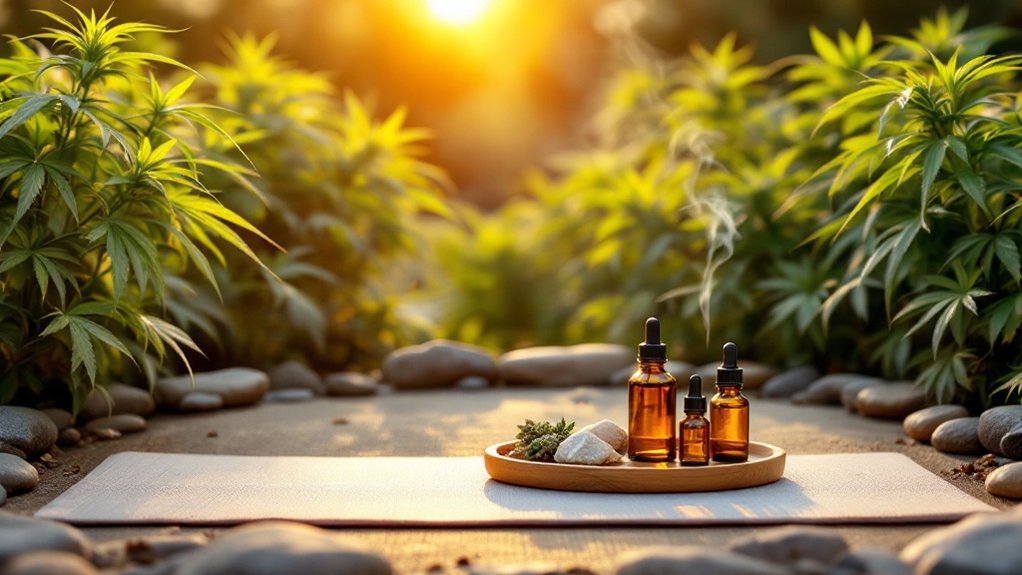
While cannabis once occupied society’s shadows, the wellness movement has transformed it into a legitimate health and lifestyle sector experiencing unprecedented growth.
The numbers tell a compelling story: global cannabis markets are projected to reach $72.83 billion in 2025, climbing to $125.76 billion by 2030. Cultural attitudes have shifted dramatically alongside economic expansion. Record-high support for legalization now stands at 88% nationwide, while 47% of Americans report trying cannabis.
Millennials and Gen Z drive this transformation, accounting for 62.8% of total U.S. sales. The CBD wellness segment alone is rising to $16 billion by 2025. This expanding market is creating significant employment opportunities, with the legal cannabis sector supporting approximately 440,445 full-time equivalent jobs in the U.S.
Innovation in product formats, including nanoemulsified drinks and microdosing options, is reshaping how consumers experience cannabis wellness. Legal tourism revenue has significantly boosted economies in regions that have embraced cannabis reform, with hotels in some areas earning millions in additional revenue. Cannabis retreats and tourism emerge as natural extensions of this mainstreaming trend, catering to health-conscious consumers seeking alternative therapeutic experiences.
What to Expect at a Cannabis Wellness Retreat: Activities, Therapies, and Experiences
As cannabis retreats emerge from niche wellness circles into mainstream hospitality offerings, participants discover immersive experiences that blend therapeutic practices with educational components and community connection.
These multi-day programs typically feature guided yoga sessions paired with low-dose cannabis for enhanced body awareness, alongside meditation practices designed to access sustained mindfulness states. Sound bath therapy incorporates crystal bowls and cannabis for sensory immersion.
Educational workshops cover Cannabis 101 fundamentals, including dosing protocols and strain selection, while cooking classes teach cannabis-infused cuisine preparation.
Therapeutic services range from CBD massage sessions to contrast bath therapy for inflammation relief. Cannabis helps participants access and process emotions more effectively, creating opportunities for emotional breakthroughs that often lead to lasting personal transformation. Many retreats specifically cater to women 35+ who are seeking wellness experiences in judgment-free environments. Community elements include gourmet cannabis-infused group meals and mood bars featuring curated prerolls and edibles.
Settings utilize serene natural locations with upscale amenities, creating all-inclusive packages that integrate wellness, education, and social experiences.
Therapeutic Benefits and Mindful Cannabis Integration for Mental Health
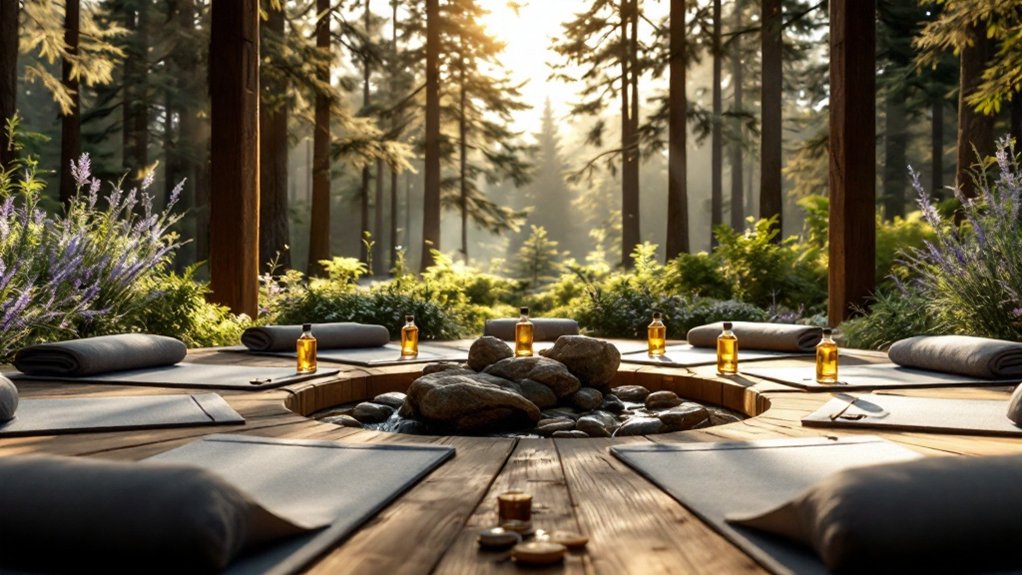
Beyond the recreational associations that have long defined cannabis culture, emerging research reveals CBD’s significant therapeutic potential for mental health conditions, with clinical trials demonstrating measurable improvements in anxiety, depression, and psychotic disorders.
Unlike THC-heavy cannabis linked to increased psychosis risk, CBD shows anxiolytic and antipsychotic properties without the mind-altering effects.
CBD offers therapeutic calm and mental clarity while avoiding the psychoactive risks associated with high-THC cannabis products.
Wellness retreats capitalize on this distinction through mindful integration protocols. Participants receive low-dose, high-CBD formulations during meditation and yoga sessions, maximizing therapeutic benefits while minimizing adverse reactions.
Some observational studies suggest reduced reliance on conventional medications like benzodiazepines following structured programs.
However, the evidence remains mixed across conditions like PTSD, where heavy use sometimes worsens symptoms. Studies indicate that cannabis abstinence leads to improved cognitive function and symptom reduction in individuals with schizophrenia. The therapeutic approach works by interacting with the endocannabinoid system, which naturally regulates critical functions including appetite, sleep, and mood.
Many retreat programs now incorporate CBN products to address insomnia and promote deeper relaxation during overnight components of wellness experiences.
Personalized care proves essential, individual mental health history dictates treatment response more than universal protocols.
Top Global Destinations for Cannabis Wellness Tourism
Cannabis wellness tourism has evolved from underground counterculture movement to a legitimate $17 billion industry spanning six continents, with destinations now competing to attract health-conscious travelers seeking therapeutic experiences rather than recreational highs.
Amsterdam remains the grandfather of cannabis tourism, boasting legendary coffee shops like The Bulldog alongside the Hash, Marijuana & Hemp Museum. However, recent restrictions have limited tourist access to many traditional coffee shops in the city.
Barcelona’s exclusive social club scene requires membership but offers privacy-focused wellness activities.
California and Colorado lead American cannabis hospitality with luxury spa treatments, CBD massages, and farm-to-table experiences in Humboldt County. These destinations host cultivation workshops where visitors can learn about growing techniques and cannabis agriculture.
Jamaica integrates Rastafarian culture through Can-Jam retreats combining tropical settings with stress relief programs.
Uruguay’s beachside Punta del Este capitalizes on being the first fully-legal nation.
Thailand emerges as Asia’s cannabis hub, blending traditional Thai healing with cannabis-infused treatments in Bangkok’s growing cafe culture.
Choosing Your Perfect Cannabis Retreat: Target Audiences and Planning Considerations

Which cannabis retreat matches your wellness goals and comfort level? Demographics reveal distinct patterns in retreat preferences.
Millennials, comprising 46% of US cannabis sales, gravitate toward tech-integrated, eco-friendly experiences with interactive social activities. Women represent the fastest-growing segment, driving demand for wellness-oriented programming like cannabis yoga and spa treatments over higher-THC recreational offerings.
Age notably influences activity preferences. Younger participants favor adventure components and group connection experiences, while older adults prioritize therapeutic benefits through non-smoking formats like topicals and tinctures. Boomers represent the fastest-growing demographic for wellness-related cannabis products, spending significantly more on therapeutic experiences.
High-income travelers expect boutique, organic environments, whereas budget-conscious clients seek curated value experiences. Retreats increasingly feature organic certifications to align with wellness-focused consumers’ values for natural, sustainably-sourced products.
Essential planning factors include clear dosing education for novices, medical screening questionnaires for liability protection, and emphasis on accessible alternatives beyond smoking methods to accommodate diverse health needs and comfort levels.
